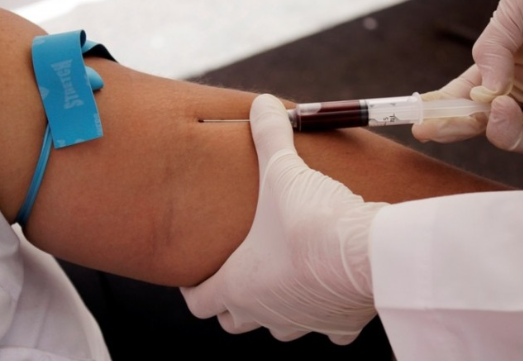A blood test can predict the chances of stroke and early detection saves heart from damage
Houston, May 7: Regular exercise, proper diet and a healthy lifestyle are the keys to evergreen life. Many people never pay attention to their hygiene, unless body starts alarming symptoms of any disorder. Prevention is better than cure. To prove these scientists are working on early detection of heart diseases. The cardiovascular disorder usually associated with a build-up of fatty deposits in the arteries (atherosclerosis) and an increased risk of blood clots. The conditions that involve narrowed or blocked blood vessels that can lead to a heart attack, chest pain (angina) or stroke. It can also be associated with damage to the arteries in organs such as the brain, heart, kidneys and eyes.

Now researchers recently found a more sensitive version of one test that may predict the chances for heart attack or stroke years in advance of any signs of cardiovascular disease.
It’s called the high-sensitivity troponin I test.
The blood test was examined as part of an Atherosclerosis Risk in Communities (ARIC) study designed to investigate the causes and clinical outcomes of atherosclerosis, or clogged arteries.
More than 15,000 middle-aged men and women were enrolled from four communities in the United States. The research team, using data from this study, concluded that the troponin I test could help predict the onset of cardiovascular issues in healthy middle-aged or older adults.
“Cardiovascular disease remains the leading cause of pain, suffering and death in the United States, and despite tremendous advances in knowledge on prevention, treatment of risk factors such as cholesterol, blood pressure and obesity is not optimal,” said Dr. Christie Ballantyne, professor of medicine and chief of the section of cardiology at Baylor.
“Improved methods to identify individuals who are at the highest risk are very important to personalize therapy so that the most intensive efforts for prevention are focused on the individuals at highest risk.”
“We were interested in identifying biomarkers that may help individuals at risk of heart disease but who aren’t typically treated,” Dr Christie Ballantyne, a study author and a professor of medicine and chief of the section of cardiology at Baylor College of Medicine in Texas, told Healthline.
“As you get middle-aged or older, what we’re seeing is biomarkers of cardiac injury, like troponin, are much better predictors than going by risk factors like cholesterol levels or blood pressure, which are much less informative past someone’s 60s and 70s,” he added.
An enzyme that indicates heart damage
“Enzymes are substances the body makes to speed up certain chemical reactions. After the heart is injured, it releases particular enzymes that doctors can test to confirm the presence of heart damage.” Ballantyne said. The enzymes that are measured to see if a person is having a heart attack are called troponin T (TnT) and troponin I (TnI).
Troponin levels are normally so low that they can’t be detected, so a positive troponin test typically means the heart has been injured, Ballantyne notes.
The high-sensitivity troponin I test can detect low levels of this enzyme. Researchers said that was associated with a significantly higher risk of cardiovascular disease — even years later.